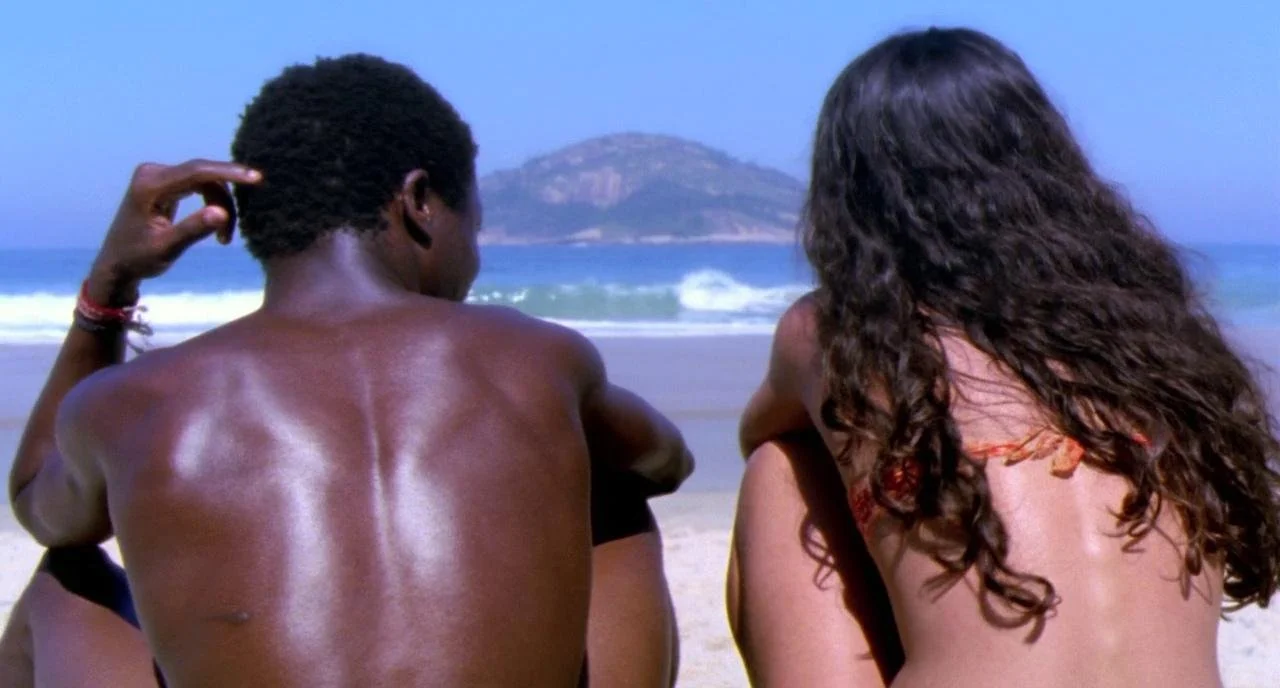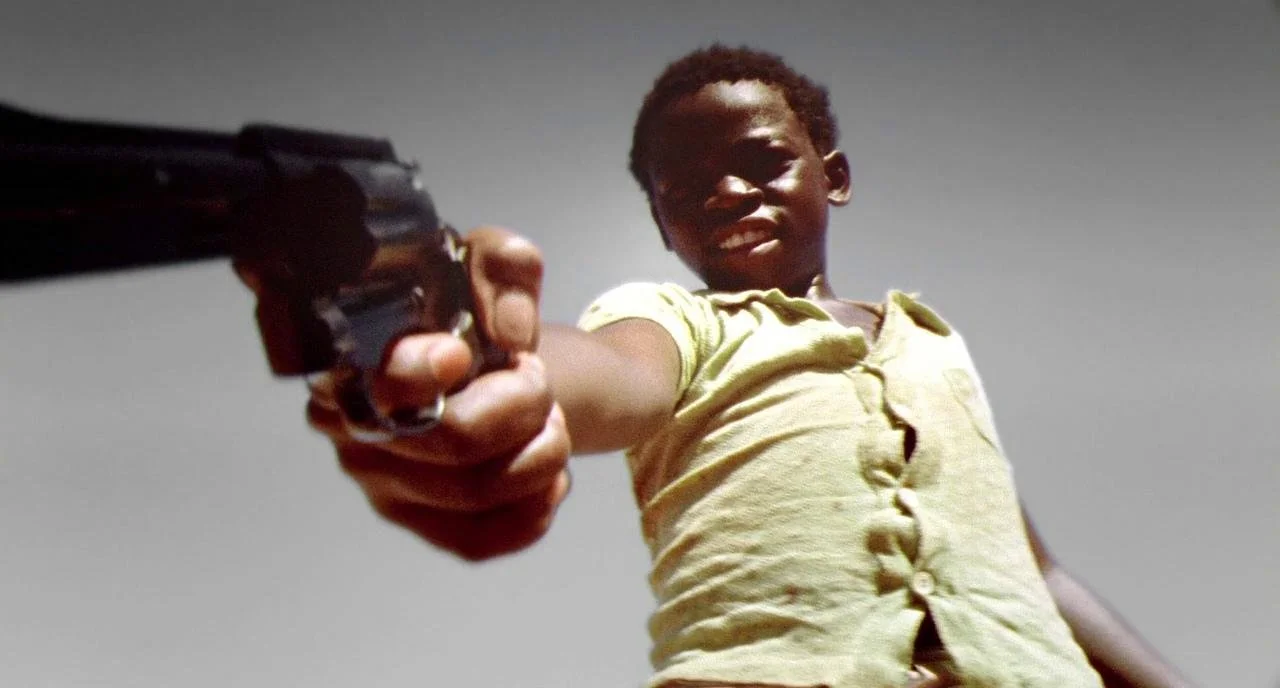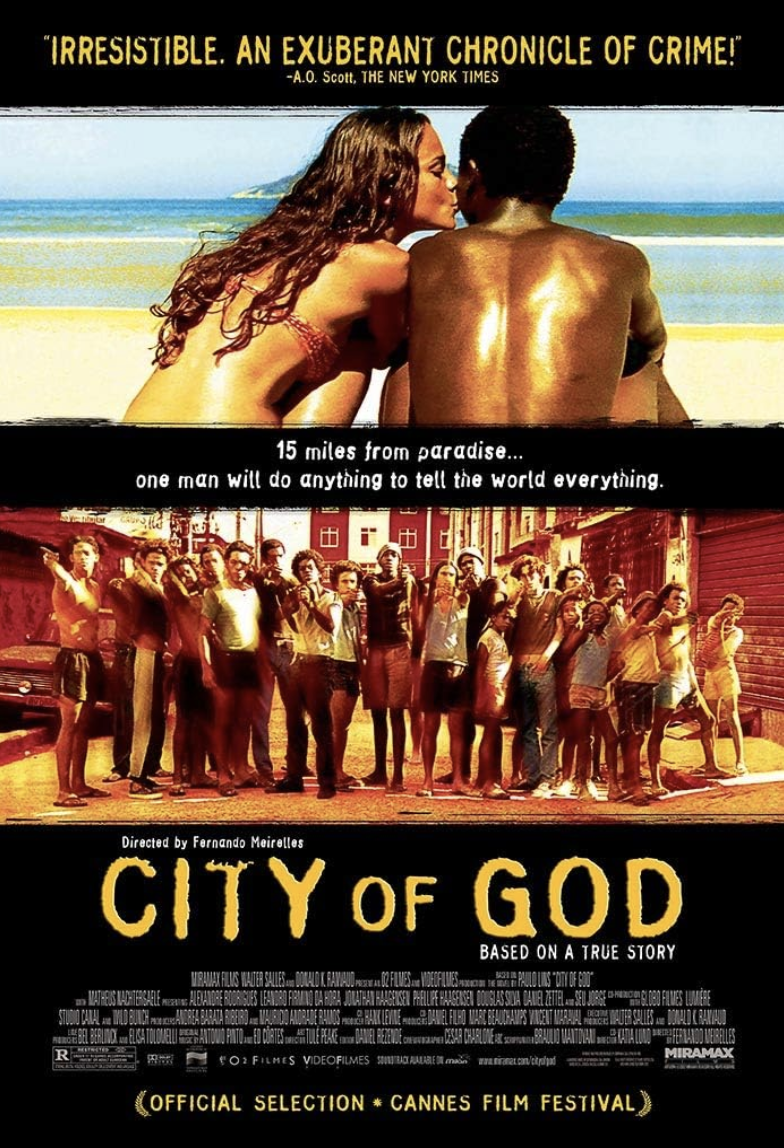MOVIE OF THE MONTH
SEP ‘25
MOVIE OF THE MONTH
SEP ‘25

CITY OF GOD
Directed by Fernando Meirelles | 2002 | 130 min
“SHE’S MY GIRL.”
City of God is one of those rare films which, within its first few moments, snags the audience’s attention and never lets go. While watching, you’re thrown headfirst into the film’s titular slums and introduced to character after character in rapid succession. Paradoxical camera movements, intentional in their chaos, carry the viewer through scenes. The relentless onslaught of imagery, often brutal in its depiction of Rio de Janeiro’s favelas, is a great strength of Meirelles’ direction. Far too often “epic” films become sluggish under the weight of their own ambition — decades of material seem to take up as much time on screen as they do off — but such is never the case with City of God.
Yet, amid all this kinetic movement, the film never loses track of its characters. The story follows the upbringing of aspiring photographer Rocket (Alexandre Rodrigues) and the ruthless drugdealer Lil’ Ze (Leandro Firmino) as they lead parallel lives in the City of God. The film plays with its chronology throughout, showing moments of intersection in the lives of both men before backtracking to show how one, the other or both arrived at a given time and place.
In a favorite scene of mine, the film depicts the young men, along with Lil’ Ze’s closest friend Benny (Phellipe Haagensen), as they cross paths at a night club. The sequence works because it condenses the film’s larger themes into a single energetic space. On the dance floor, Meirelles captures joy, love, and friendship, but he sets them against undercurrents of envy, isolation, and tragedy. These contrasting emotions, all colliding and sparking off of one another, charge the film with enough energy that at any second it might just explode.
While evoking such a range of emotions is already impressive, it is the needle drops that make the scene unforgettable. Tower of Power’s “So Very Hard to Go” briefly gives the audience empathy for Lil’ Ze as he fails to impress a girl on the dancefloor. Even more striking, however, is the transition into Carl Douglas’ “Kung Fu Fighting” as Ze and Benny dispute the prioritization of the latter’s girlfriend over their drug empire. The intro to a song so often heard as playful and carefree is recharged as sad and reflective, underscoring the growing distance between two friends. City of God is so unforgettable because it finds joy, heartbreak, and humanity in strange places, capturing a full image of life in the favelas. Every snapshot flickers with tension, and the sense that just about anything could happen next.
- Matt

CITY OF
GOD
Directed by Fernando Meirelles
2002 | 130 min
“SHE’S MY GIRL.”
City of God is one of those rare films which, within its first few moments, snags the audience’s attention and never lets go. While watching, you’re thrown headfirst into the film’s titular slums and introduced to character after character in rapid succession. Paradoxical camera movements, intentional in their chaos, carry the viewer through scenes. The relentless onslaught of imagery, often brutal in its depiction of Rio de Janeiro’s favelas, is a great strength of Meirelles’ direction. Far too often “epic” films become sluggish under the weight of their own ambition — decades of material seem to take up as much time on screen as they do off — but such is never the case with City of God.
Yet, amid all this kinetic movement, the film never loses track of its characters. The story follows the upbringing of aspiring photographer Rocket (Alexandre Rodrigues) and the ruthless drugdealer Lil’ Ze (Leandro Firmino) as they lead parallel lives in the City of God. The film plays with its chronology throughout, showing moments of intersection in the lives of both men before backtracking to show how one, the other or both arrived at a given time and place.
In a favorite scene of mine, the film depicts the young men, along with Lil’ Ze’s closest friend Benny (Phellipe Haagensen), as they cross paths at a night club. The sequence works because it condenses the film’s larger themes into a single energetic space. On the dance floor, Meirelles captures joy, love, and friendship, but he sets them against undercurrents of envy, isolation, and tragedy. These contrasting emotions, all colliding and sparking off of one another, charge the film with enough energy that at any second it might just explode.
While evoking such a range of emotions is already impressive, it is the needle drops that make the scene unforgettable. Tower of Power’s “So Very Hard to Go” briefly gives the audience empathy for Lil’ Ze as he fails to impress a girl on the dancefloor. Even more striking, however, is the transition into Carl Douglas’ “Kung Fu Fighting” as Ze and Benny dispute the prioritization of the latter’s girlfriend over their drug empire. The intro to a song so often heard as playful and carefree is recharged as sad and reflective, underscoring the growing distance between two friends. City of God is so unforgettable because it finds joy, heartbreak, and humanity in strange places, capturing a full image of life in the favelas. Every snapshot flickers with tension, and the sense that just about anything could happen next.
- Matt






